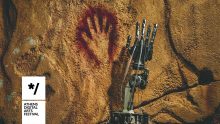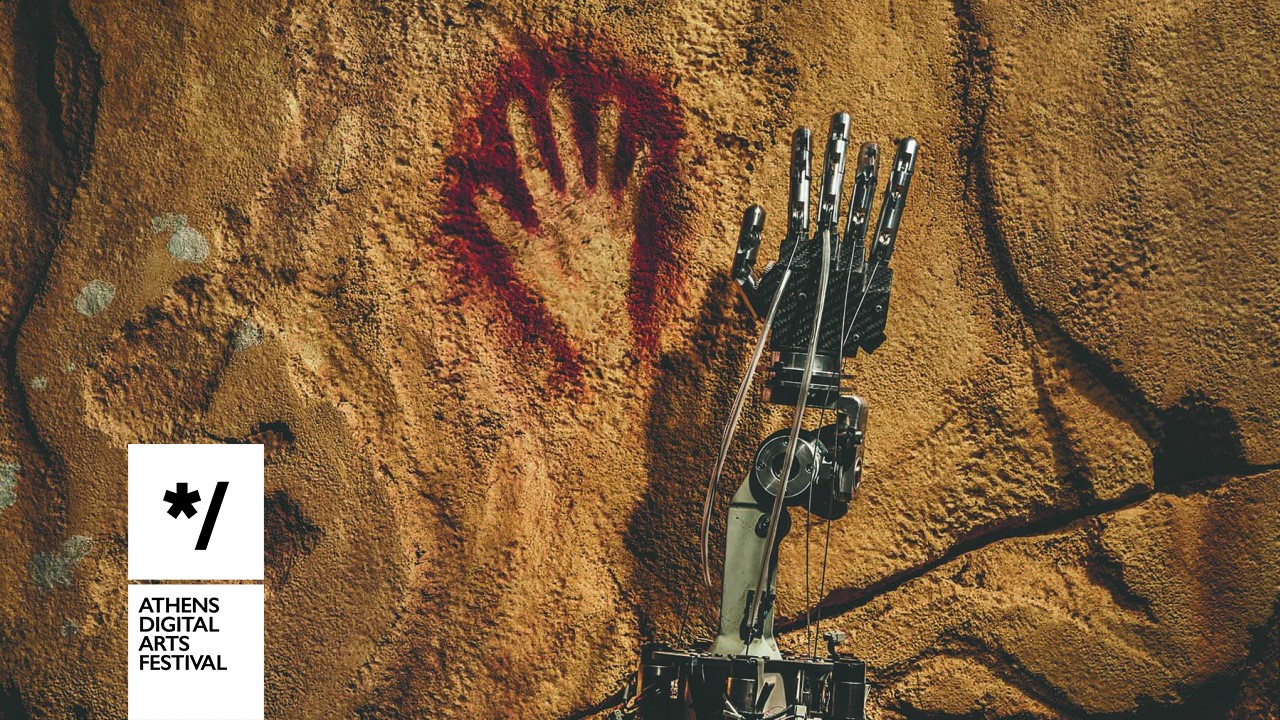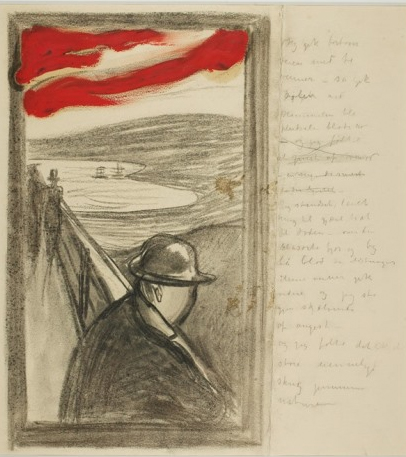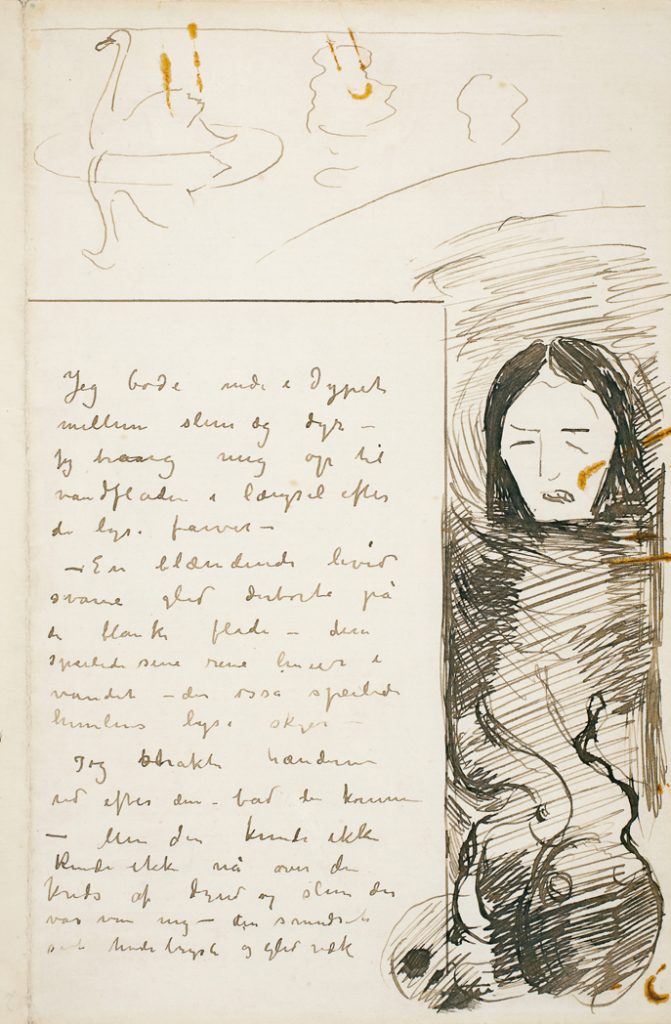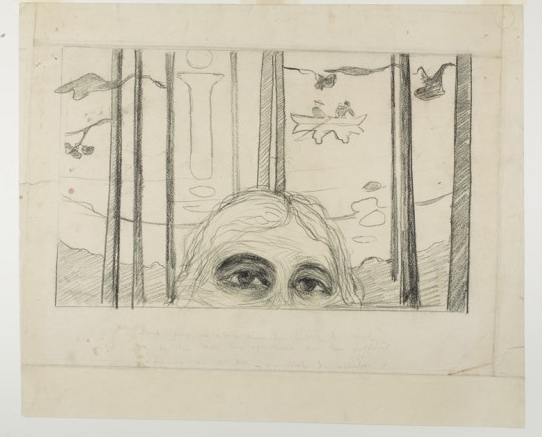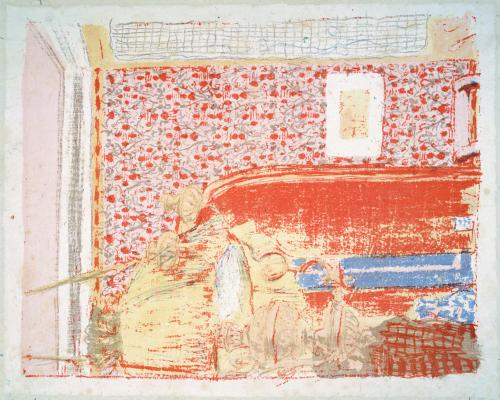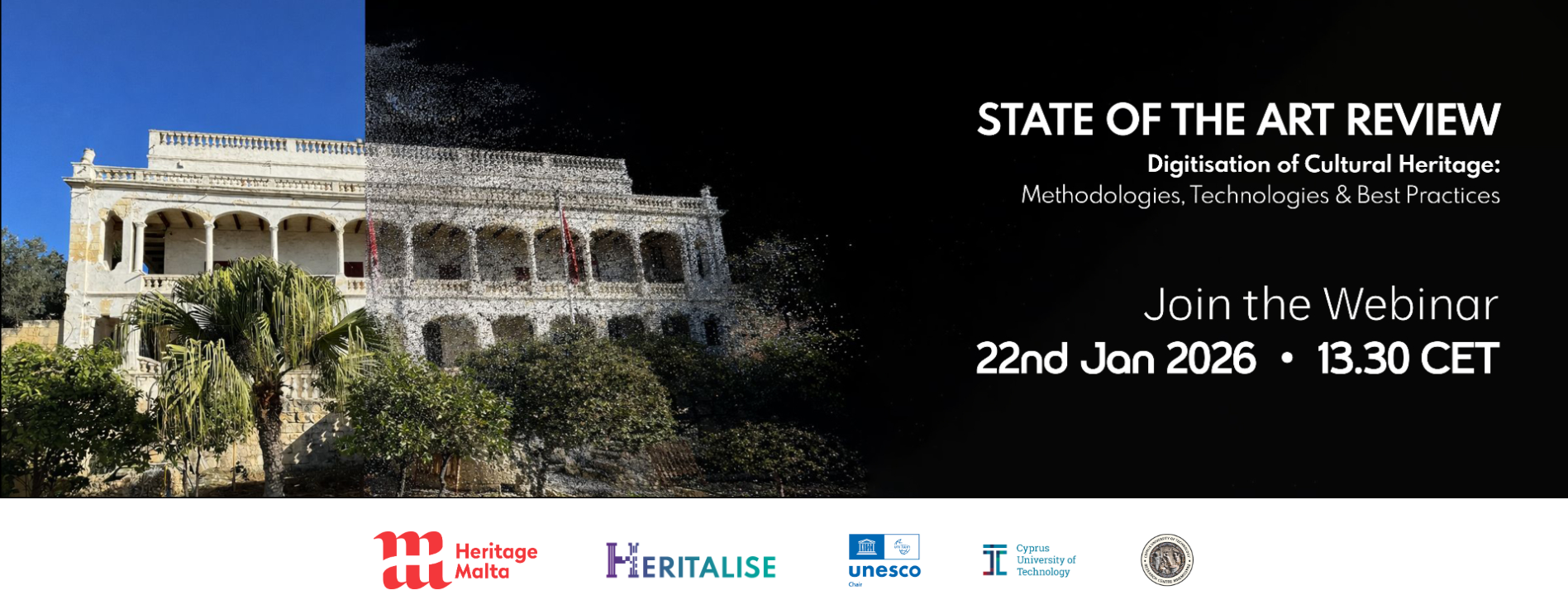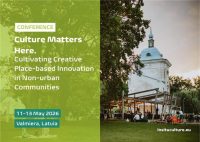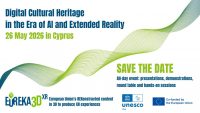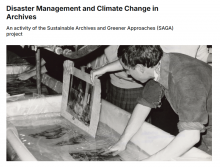text by Caterina Sbrana.
“It was a hot, clear morning. I was getting ready to leave for the Tax Office, near Hatchobori, where I worked as a Mobilization Workforce Student. There was a bright flash and an extremely loud noise and then the house crumbled. For a few minutes I was in darkness. I lay on the floor, covering my ears and eyes, unable to move.
I waited for some light to shine through the rubble and dug myself out. I went and stood in the yard and looked around. All of the houses in the area had collapsed and the roofs were sprawled on the ground. By the time I got to the streetcar tracks, I was completely surrounded by fire. So I took the only way out, which led me in the direction of Yoshijima. There were many people around me escaping the fire, but no one spoke. We all walked with a horrified look across our faces. Many people were swaying as they walked. They were naked apart from rags hanging from their outstretched arms. I was not thinking very clearly and my mind could not comprehend why they would all be naked. I mostly remember the destroyed houses and water squirting out of the broken pipes” […].
This is the beginning of Teru Feruta’s (maiden name, Kawaguchi) tale “My A-Bomb Experience”.
A month has passed since August 6th. A date on which each Japanese, in their own way, remembers the terrible epilogue of the Second World War. As usual, every year, the press dedicates articles or broadcasts to commemorate this terrible page of human history and proposes us testimonies of survivors who, year after year, are always in fewer numbers. The words, written or spoken, remind us that at 8:45 am “Little Boy”, so called the enriched uranium nuclear bomb, was dropped on the Japanese city of Hiroshima bringing with it death and destruction. Three days later it was Nagasaki’s turn. 100 to 200 thousand civilians died. 75 years divide us from that August 6th, 1945, but memory can approach that event and not let it fall into oblivion, browsing the specifically created website.
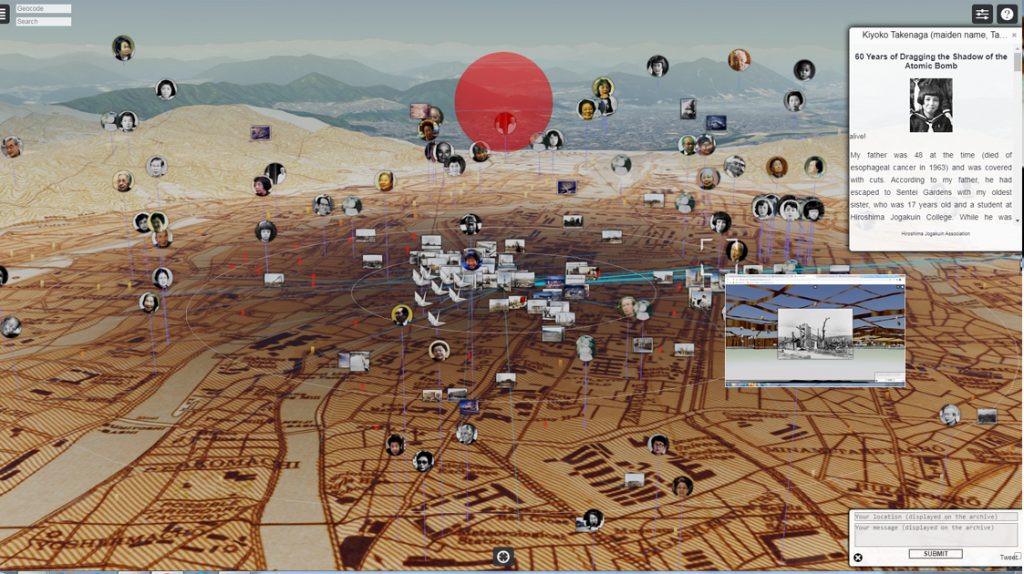
The home page is gradually enriched with pictures or photographs of places; by clicking on a portrait we receive some informations: Kiyoko Takenaga: tells what happened to his family on that dramatic day. Image from: http://hiroshima.archiving.jp/index_en.html
To deepen our knowledge I suggest to visit the Hiroshima Archive website, as through the stories of survivors we can consolidate our idea of the repudiation of war no ifs, ands, or buts.
Hiroshima Archive is “a pluralistic digital archive using the digital earth to display on it in a multilayered way all the materials gained from such sources as the Hiroshima Peace Memorial Museum, the Hiroshima Jogakuin Gaines Association, and the Hachioji Hibakusha (A-bomb Survivors) Association.
All users can get a panoramic view over Hiroshima to browse survivors’ accounts, photos, maps, and other materials as of 1945, together with aerial photos, 3D topographical data, and building models as of 2010. The archive aims to promote multifaceted and comprehensive understanding of the reality of atomic bombing”.
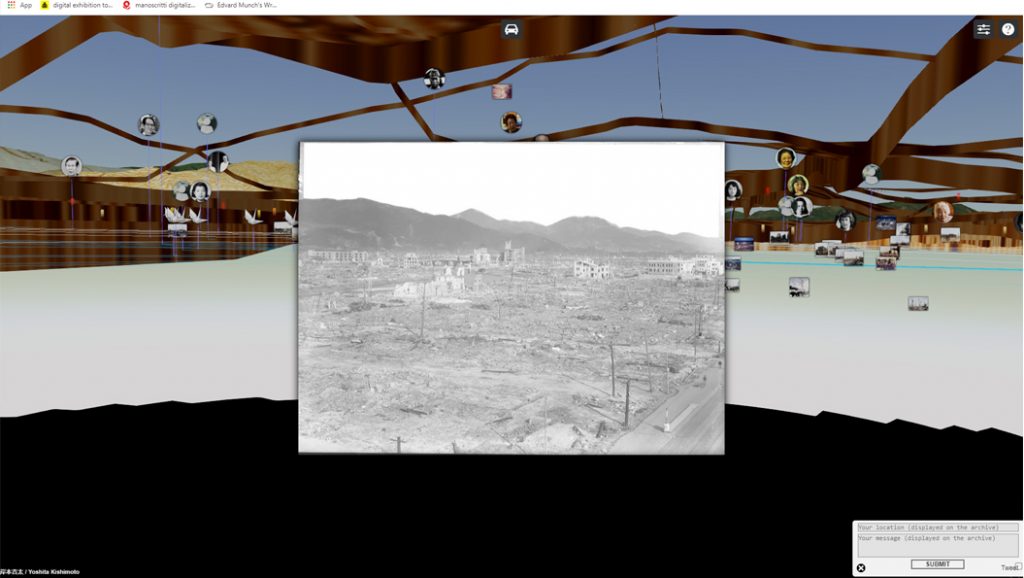
By clicking on Viewing with Digital Earth a series of images appear and each photograph can be enlarged and tells the epilogue and the consequences of the release of atomic bombs. Image from: http://hiroshima.archiving.jp/index_en.html
The “Hiroshima Archive” has been produced in 2011 by melding a large amount of materials accumulated over 66 years with the latest Internet technologies, with a view to passing on the experiences and messages of A-bomb survivors to future generations.
The interactive map on the home page is gradually enriched with pictures or photographs of places. Clicking on the photos of people appears the name of who tells and a description.
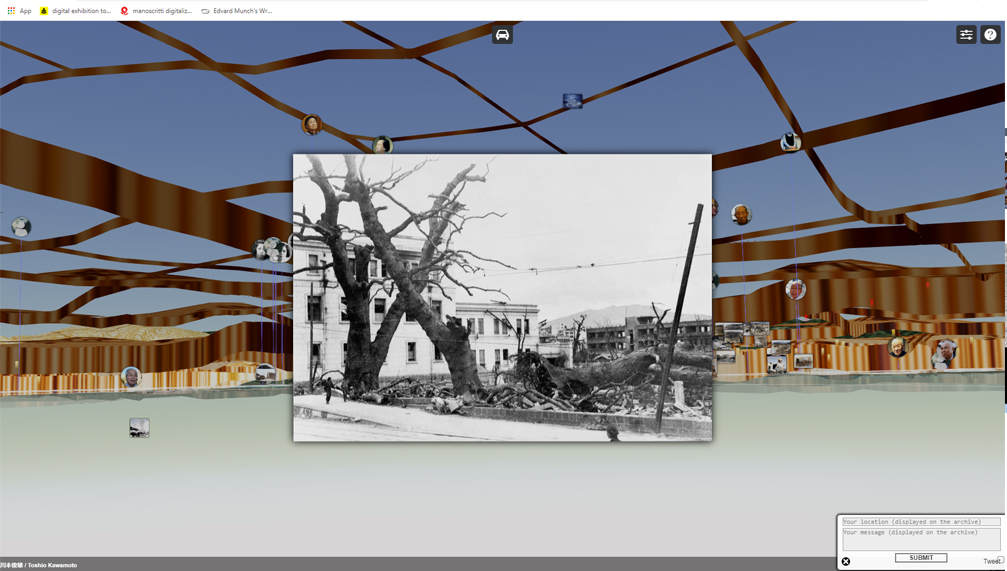
Another example of the destruction of bombs is witnessed by this photograph. Image from: http://hiroshima.archiving.jp/index_en.html
If we click on the photos of the environments we can get an idea of the level of destruction of the bomb.
A 5-minute video with captions in Japanese and English takes us to Japan. A circular tale that begins with the image of a watch dial that marks 8:45 and ends with the same dial that continues to mark the same time. As if time had stopped. In between, starting from the Peace Memorial, the narration tells, through a series of photographs, the life of Hiroshima before the nuclear attack.
We share the goal of the creators of the archive “to make the archive a platform to gather the threads of stories for the future by sharing the past memories and the present messages in both real and web spaces” and “to collect from all over the world messages of hope for peace and nuclear abolition and incorporate them into the digital archive”.
http://hiroshima.archiving.jp/index_en.html




 The conference aims to promote exchange and discussion between researchers and heritage professionals in the field of digital natural and cultural heritage.
The conference aims to promote exchange and discussion between researchers and heritage professionals in the field of digital natural and cultural heritage.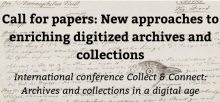
 This conference welcomes papers that present, discuss, and reflect upon the technical, social, and institutional challenges that experts and researchers in the field of digital heritage encounter when enriching heterogeneous digitized collections with context.
This conference welcomes papers that present, discuss, and reflect upon the technical, social, and institutional challenges that experts and researchers in the field of digital heritage encounter when enriching heterogeneous digitized collections with context.
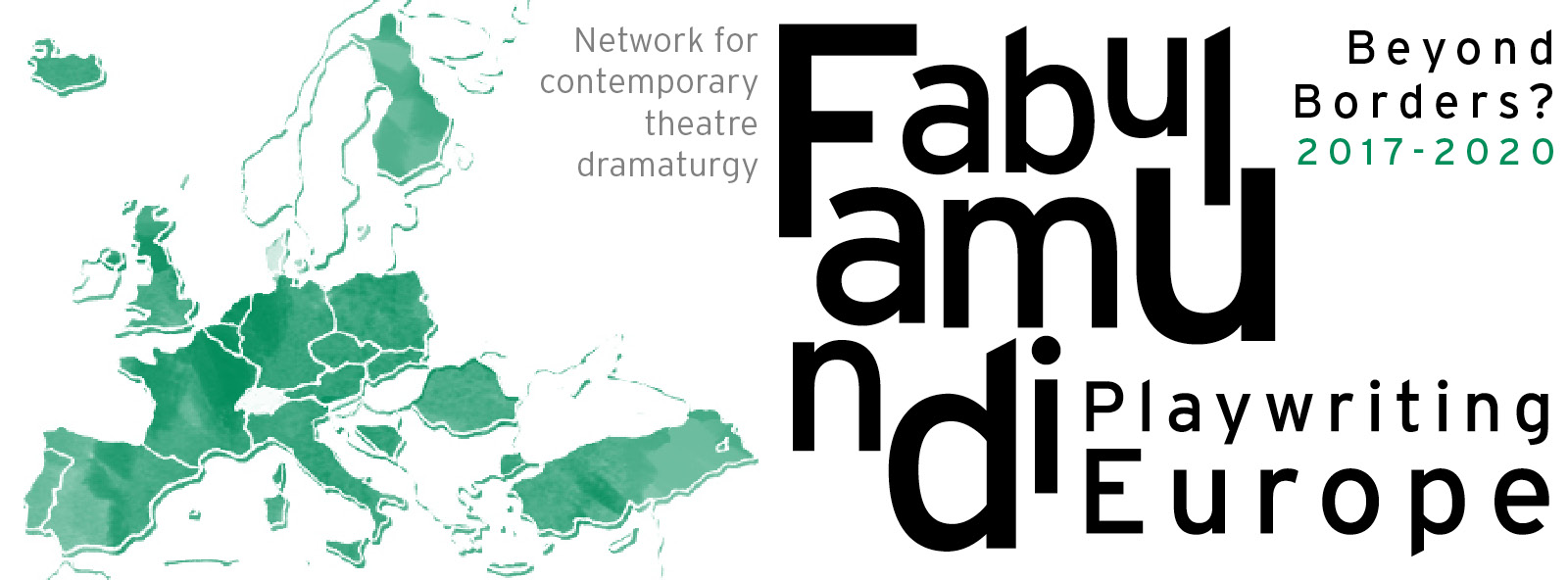 “Fabulamundi Playwriting Europe: Beyond Borders?” is a cooperation project among theatres, festivals and cultural organisations from 10 EU Countries (Italy, France, Germany, Spain, Romania, Austria, Belgium, UK, Poland and Czech Republic). The network aims to support and promote the contemporary playwriting across Europe, in order to reinforce and enhance the activities and strategies of the professionals and artists working in the sector and to provide the theatre authors and professionals with opportunities of networking, multicultural encounter and professional development.Funded twice by the European Commission before the current edition, “Fabulamundi Playwriting Europe” won the Creative Europe Call as cooperation project 2017 – 2020 and now intends to widen both its reach and impact in the theatre sector. The theme of this edition of Fabulamundi is “Beyond borders?”, a wide reflection about a relevant, challenging and dramatic urgency for Europe and European citizens. In these days characterized by the immigration emergency and by the rising of new walls, “Fabulamundi – Beyond borders?” intends to focus on the issue of overcoming borders, in order to provide a deep sight and understanding on contemporary matters.
“Fabulamundi Playwriting Europe: Beyond Borders?” is a cooperation project among theatres, festivals and cultural organisations from 10 EU Countries (Italy, France, Germany, Spain, Romania, Austria, Belgium, UK, Poland and Czech Republic). The network aims to support and promote the contemporary playwriting across Europe, in order to reinforce and enhance the activities and strategies of the professionals and artists working in the sector and to provide the theatre authors and professionals with opportunities of networking, multicultural encounter and professional development.Funded twice by the European Commission before the current edition, “Fabulamundi Playwriting Europe” won the Creative Europe Call as cooperation project 2017 – 2020 and now intends to widen both its reach and impact in the theatre sector. The theme of this edition of Fabulamundi is “Beyond borders?”, a wide reflection about a relevant, challenging and dramatic urgency for Europe and European citizens. In these days characterized by the immigration emergency and by the rising of new walls, “Fabulamundi – Beyond borders?” intends to focus on the issue of overcoming borders, in order to provide a deep sight and understanding on contemporary matters.
 The aim of the conference is to make a broad review of the problems related to the protection, conservation, use and management of historic ruins. The key assumption of the conference is comprehensive discussing the contemporary principles and forms of maintaining historic ruins in the historical, theoretical and practical aspects. The conference also aims to present and critically analyse the most interesting examples of contemporary protection, management and use of historic ruins. The results of RUINS project and the experience gained during project implementation will also be presented during the conference.
The aim of the conference is to make a broad review of the problems related to the protection, conservation, use and management of historic ruins. The key assumption of the conference is comprehensive discussing the contemporary principles and forms of maintaining historic ruins in the historical, theoretical and practical aspects. The conference also aims to present and critically analyse the most interesting examples of contemporary protection, management and use of historic ruins. The results of RUINS project and the experience gained during project implementation will also be presented during the conference. 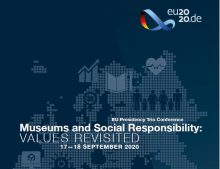
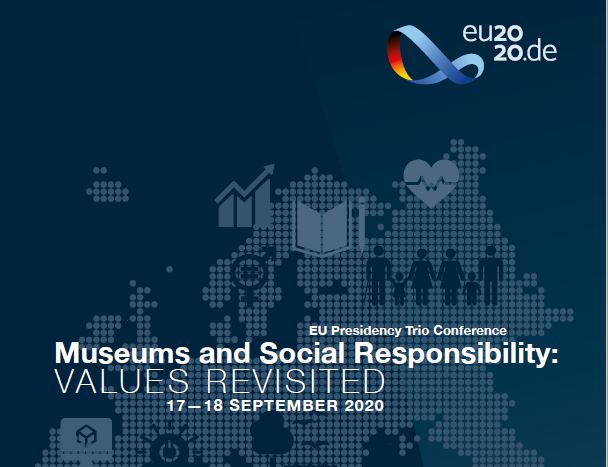 What social responsibility means for museums?
What social responsibility means for museums?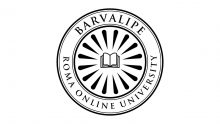
 Bavarlipe Roma Online University is an online educational platform where Roma and non-Roma can access knowledge about the Roma identity(ies), history(ies) and culture(s) thorough a collection of high-quality lectures delivered by leading Roma scholars on topics ranging from the Roma Holocaust to Roma cultural productions. In partnership with Central European University (CEU), this project is part of ERIAC’s Roma Cultural History Initiative financed by the German Federal Foreign Office (FFO).
Bavarlipe Roma Online University is an online educational platform where Roma and non-Roma can access knowledge about the Roma identity(ies), history(ies) and culture(s) thorough a collection of high-quality lectures delivered by leading Roma scholars on topics ranging from the Roma Holocaust to Roma cultural productions. In partnership with Central European University (CEU), this project is part of ERIAC’s Roma Cultural History Initiative financed by the German Federal Foreign Office (FFO).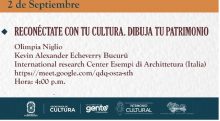
 The online webinar in Lima, Peru, last 31th July, has been a success with many people from different countries of Asia, Africa, Europe, and America.
The online webinar in Lima, Peru, last 31th July, has been a success with many people from different countries of Asia, Africa, Europe, and America.